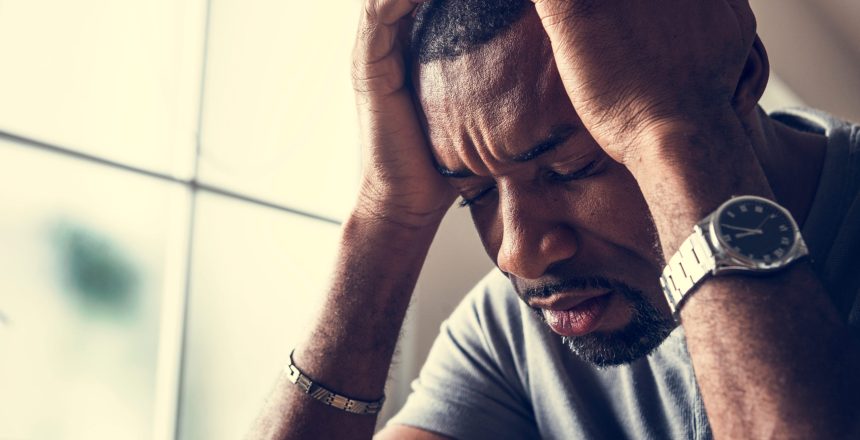Like many chronic illnesses (asthma, heart disease, diabetes), addiction is considered a treatable disorder. This means that while there is no cure for addiction, you can manage it successfully with treatment and commitment to practicing relapse prevention tools. However, addiction is considered “a chronic, relapsing disorder,” meaning someone who struggles with addiction may experience a relapse, or a return to substance use, even after completing treatment.
Unfortunately, relapse is not rare. The NIDA, National Institutes on Drug Abuse, suggests that between 40 and 60% of people who complete an addiction treatment program will face relapse at least once as part of their recovery journey. It is vital to remember that relapse is not a sign of failure, although frustrating, upsetting (and potentially dangerous). Relapse is a common part of the illness of addiction, and it is possible to overcome relapse and get back on track with your recovery.
What Causes Relapse?
Many unique factors contribute to relapse, and each affects one person differently than another. Relapse is often a combination of physical, environmental, and emotional triggers. Triggers will inevitably remain a challenge to your sobriety even after completing treatment, and there are certain people, places, or things that may lead to the urge to drink or use. For example:
- Going to a place where alcohol or drugs are present such as a club or party
- Being around people using or drinking
- Seeking objects that remind you of substances use
As powerful as they are, environmental triggers are not the only challenge to your sobriety. Mental health and biological triggers may also create challenges. For many who are new to recovery (or even well into their recovery), emotions, thoughts, and untreated or undiagnosed mental health challenges may increase your vulnerability to relapse. Common examples include:
- Stressful work experiences.
- Family struggles.
- Trauma.
- Negative emotional experiences.
- Untreated mental health conditions such as anxiety and depression.
Physical difficulties such as body aches, chronic pain, or physical pain stemming from illness or injury can also lead to relapse. This is especially true if powerful medications are prescribed to manage pain related to an injury.
In addition to the above, suddenly stopping medications linked to medication-assisted treatment (MAT) or not having a robust and supportive support system at home can cause recovery challenges. It is essential to ensure that your aftercare plans consider the things you will need long-term to maintain lasting sobriety, especially if your support structure outside of the treatment environment is lacking.
What are Relapse Prevention Programs?
Relapse prevention programs, sometimes called aftercare programs, are a part of the therapeutic process that often begins immediately after your primary treatment program. As part of an aftercare program, you will continue learning more about vital relapse prevention tools and how you can adapt those tools to meet your specific needs. You will also participate in peer support groups and ongoing counseling sessions designed to help you reinforce all that you gained during treatment. The best relapse prevention programs consider your unique needs. They are designed around helping you maintain access to therapy, peer support, medical support, and the other elements of aftercare you need to maintain lasting sobriety.
Tips for Preventing Relapse
Relapse is common but not unpreventable. You can do a few things to help reduce your chances of experiencing a relapse. First, avoid triggers. As part of treatment, you will learn more about triggers to better understand what might lead you to use or drink again. Although it is likely impossible to avoid everything that may be triggering, developing self-awareness and knowing that a particular person, place, or thing may lead to challenges can help you better manage your exposure.
It is also important to have a strong support system you can turn to when you need help. Many people develop a strong circle of peers as part of their aftercare program. Others may have supportive family and friends at home if they need assistance to prevent relapse or get back to treatment if a relapse occurs. Peer support groups or treatment alumni programs are an excellent source of non-judgmental support where you can learn from and help others who are on the same journey.
Finally, reach out for help. If you are worried about relapse, have relapsed, or struggle to effectively manage relapse triggers, reaching out for help at an inpatient treatment program in Michigan like Liberty House can help you stay on track or get back on track after relapse. If you are concerned about relapsing, it may indicate you need to work with your treatment provider to adjust your current aftercare plan. Taking steps early can prevent relapse and help you stay on the road to lasting recovery.
How to Find Relapse Prevention Near Me
Relapse can occur for many reasons, but it is possible to prevent relapse by participating in a comprehensive relapse prevention program in Michigan. If you are currently in rehab, talk to your treatment team about relapse prevention and aftercare planning. If you are concerned about relapse or have relapsed, don’t wait to seek help. Contact us at Liberty House to get back on track with your recovery.


